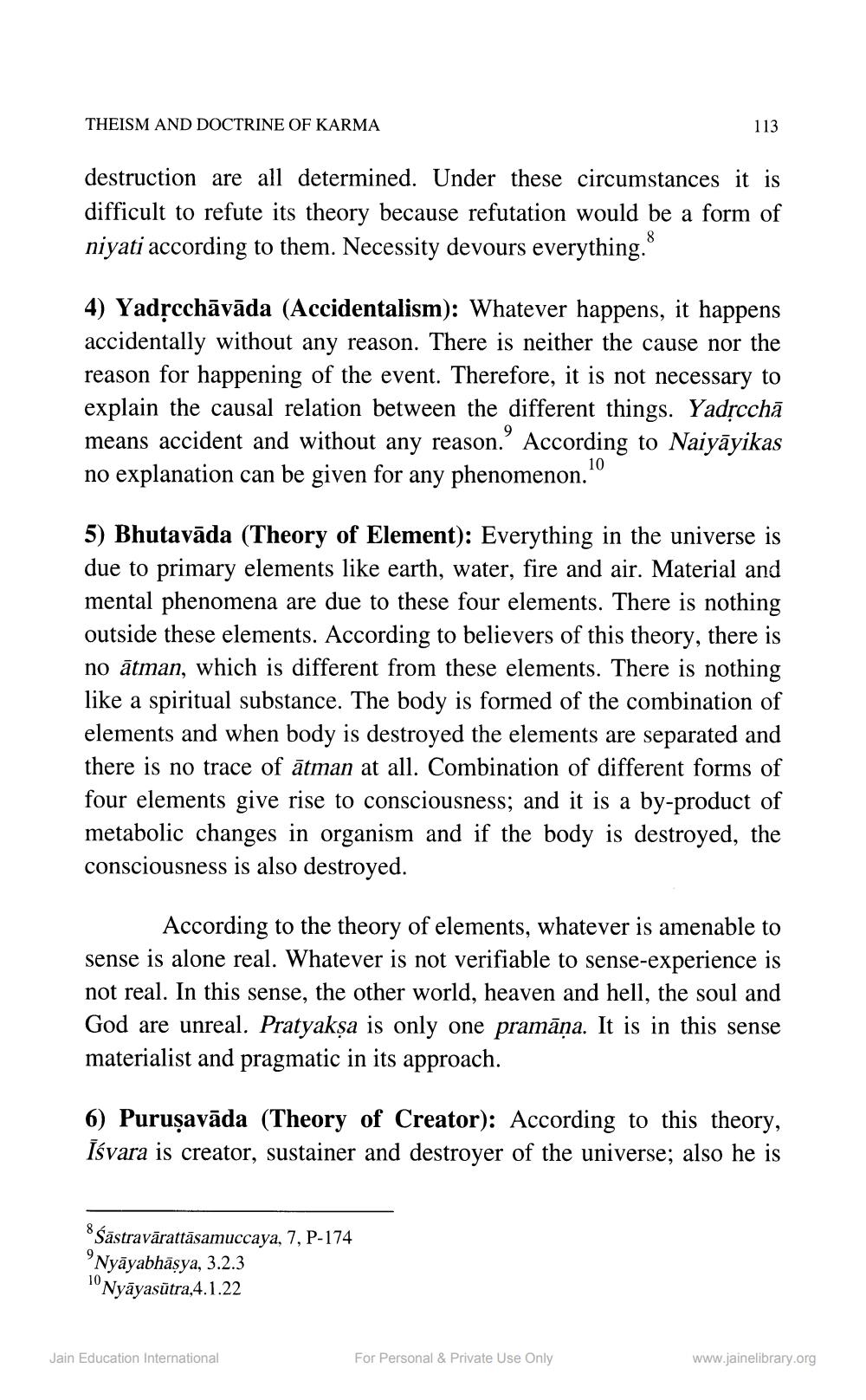________________
THEISM AND DOCTRINE OF KARMA
destruction are all determined. Under these circumstances it is difficult to refute its theory because refutation would be a form of niyati according to them. Necessity devours everything.
4) Yadṛcchāvāda (Accidentalism): Whatever happens, it happens accidentally without any reason. There is neither the cause nor the reason for happening of the event. Therefore, it is not necessary to explain the causal relation between the different things. Yadṛccha means accident and without any reason." According to Naiyāyikas no explanation can be given for any phenomenon."
10
5) Bhutavada (Theory of Element): Everything in the universe is due to primary elements like earth, water, fire and air. Material and mental phenomena are due to these four elements. There is nothing outside these elements. According to believers of this theory, there is no ātman, which is different from these elements. There is nothing like a spiritual substance. The body is formed of the combination of elements and when body is destroyed the elements are separated and there is no trace of atman at all. Combination of different forms of four elements give rise to consciousness; and it is a by-product of metabolic changes in organism and if the body is destroyed, the consciousness is also destroyed.
113
According to the theory of elements, whatever is amenable to sense is alone real. Whatever is not verifiable to sense-experience is not real. In this sense, the other world, heaven and hell, the soul and God are unreal. Pratyakṣa is only one pramāṇa. It is in this sense materialist and pragmatic in its approach.
6) Puruṣavāda (Theory of Creator): According to this theory, Isvara is creator, sustainer and destroyer of the universe; also he is
8 Sastravarattasamuccaya, 7, P-174
9
"Nyāyabhāṣya, 3.2.3 10 Nyayasutra.4.1.22
Jain Education International
For Personal & Private Use Only
www.jainelibrary.org




